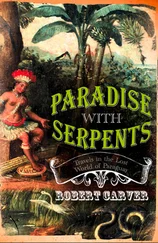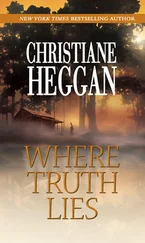I felt eighty. “You said she was married.”
“I most certainly did not, Mr. Naughton.”
“You said ‘those two’ weren’t your kind of people.”
“I know I shouldn’t be so quick to judge.”
“What two people, though, if she was a widow?”
“Her son.”
I did the math. I woke from my reverie, a little excited. Finally, a nibble. “He’d be in his late twenties, early thirties.”
“Full grown, anyway. Probably somewhere that age. Living with her.”
“In the second unit?”
“Oh, I don’t know. Hardly ever saw either of them out and about She had some older daughters, used to come around. Trashy women, if I have to say so. The mother — Wanda — tiny little thing, about as friendly as a rattlesnake. Now I heard, and this might not be true, but I was told she married something like six or seven times. I can’t say for sure, though. They all could have been decent folks, I guess. But you hear things. I just know they were real private people. Didn’t talk to the neighbors, kept to themselves. Had some money, but lived kind of low. Got no idea where they went to. You know, that place of theirs didn’t sell until last year. They were asking too much. Then, the man who bought it, it was for his daughter so she’d be on her own, well she got married anyway and moved out of state. So now it’s for sale again. Slow market. Buyers’ market, like I was saying.”
“So nobody’s lived there since the Grantleys?”
“No, not unless some freeloaders broke in and squatted it. We put a lock box on it, but that happens sometimes.”
“Here, let me take down that address, and the month of sale.”
“You already did, Mr. Naughton. You all right?”
“Yeah. Tell me how to get there, will you? And how about the key to that lock box?”
Hopkin was about twenty miles southwest, off of Highway 277. Birchwood was two turns off the main route, to the north, then west again. It was a long straight road with mailboxes every hundred yards or so. The asphalt was gray and the gravel on the shoulders almost white, and the sumac growing down to the shoulders was dark green in the spring light. The houses sat well back from the street, under canopies of trees and hedges and sagging power lines. The houses had porches and the porches had swings. Nice houses once, I thought, but sliding downhill now, neglected and alone as old people.
The Grantley place had a rusted mailbox with the metal flag up to signal outgoing parcels. The weeds had grown up around the stanchion and the house was hardly visible through the trees. I passed it once, then doubled back and eased into the driveway. I lowered the window, killed the engine and sat there. The house was clearly vacant. I could see through the glass of one of the windows, straight to a blank interior wall. The other front window had a shade drawn down most of the way. Nothing on the patio. The “For Sale” sign leaned back like an outfielder watching a home run. The lawn was dead except for the green on the sides, where a fresh crop of weeds had grown. The weeds climbed over a pink crenelated divider and spilled onto the walkway. The house was painted gray and the paint was starting to peel. Cicadas trilled from the black recesses of a huge elm tree and a mockingbird sang an insane melody to himself.
I got the house key from the lock box on the garage door. Through a chain-link fence I could see the second unit in the back, overhung by a big walnut tree. Back on the porch, the screen door creaked as I held it open and worked a rusty key into a rusty lock.
The first thing I smelled inside was bacon. Then dust, mildew and old carpet. The living room was the first thing you walked into. It was small and square, with a doorway leading to the kitchen and another to a hall. The fireplace was brick, with a mantelpiece of painted wood. There were three bedrooms, all small and dark in the eternal shade of the big trees outside. The wall-to-wall carpet was a pale blue. The kitchen had a little cheer to it — yellow tiles on the counter and yellow linoleum with white flecks in it. The wallpaper was yellow and white. The flooring was dark and warped up where the refrigerator had stood. The only furnishing in the whole place was a small end table with a phone on it. I picked up the earpiece and got nothing but silence and the muted cicadas and mockingbird, still at it in the trees outside.
When you stood in the backyard you couldn’t see the neighbors or the street. Just the back side of the house and the front of the second unit, which was a small, rectangular version of the main house. It had a little porch and a screen door. I stood there in the middle of the dead lawn and kicked the hulls of the walnuts, which lay thick and cracked over the tan grass. There was a birdbath tilted and empty, the dish stained black. When I looked up, it was all foliage and power lines with a swatch of light blue sky in the middle. The day was warm but the yard was cool, and I had the feeling that I could have done just about anything I wanted here, and nobody would see.
I went through the lock-box routine for the second unit and let myself in. The feeling inside was altogether different. The first smell I got was faint and fecal, but it wasn’t a human smell, or a canine one. Different. The floor was hardwood and dusty. The walls were paneled in dark wood, there were still shelves up everywhere, the kind you attached with L brackets to set the planks on. There was a fireplace, but it was just a facade painted black in the middle to give it the illusion of depth. The kitchenette was off to the left. Nothing much remained: two cardboard salt-and-pepper shakers, a filthy tumbler, an empty plastic half gallon of generic tequila on the floor in the corner. Beside it was a brown pasteboard box, with partitions inside to protect bottles in shipping. I pulled up the empty bottles one at a time: more generic tequila. A fellow cactus addict, I thought. Something beside the box caught my eye, though, so I picked it up: a little triangle of white net material, just a scrap, no bigger than a stamp. Like the girls were made to wear. Robes. Nets. Wings. Webs.
My heart jumped.
You got to the back room through the kitchen. I opened a door with a loose glass knob and pushed through.
The fecal smell was stronger, but I still couldn’t identify it. Maybe it wasn’t fecal after all, but it had a meaty, digested, though not foul aroma. A smell like you might think coyote shit would have, all that fur and bone processed by the body for the little muscle it contained. It was almost rodentlike, maybe. Old.
But there in this back room, you could actually see. Muted rays came in through a skylight panel on the roof. There was a bathroom off to the right. To my left was another wall filled with empty shelves. The far wall, though, that was the weird thing — one long pane of glass from floor to ceiling. Behind the glass I could see what looked like a place for tropical plants, or an animal, or birds perhaps. The floor was built up a couple of feet with rough cement that was shaped to look like rock. There was an empty pool at one end. It looked like the deceased version of one of those vivarium displays you might see in a store — a store that carried tropical plants, or birds, or fish... or snakes. I felt the hair on my neck quiver and a cold little tingle break out on the skin of my back.
I got behind the glass through a full-sized door at the right end. There were four heavy-duty slide locks on it — top, bottom and two on the side. I wondered what kind of wildlife required four locks to keep in. Not canaries, bromeliads or chameleons.
I stood within the cage and looked out. The room became oddly interesting when viewed from inside the glass, like it might be a representative model of Homo sapiens -environment, late twentieth century. I felt covert. It was the same feeling I got behind the one-way mirror of one of our interview rooms at the station. The ceiling above me was plywood, and I could tell from the spacing of the screws — about one inch — that it was built to last. The outlines of fixtures were visible every four feet or so, but the fixtures were gone and only the screw holes remained. Lights? Heating or cooling elements? The sides were not glass at all, but a continuation of the rock-look concrete. It must have been molded over a wire-and-wood mold. Same with the back. The old rodent smell was stronger inside. I walked over to the pool and saw the drain at the bottom. Kneeling, I swept my fingertips over the drain grate and brought up a dry smear of what looked like sand. In the far corner of the tank, behind the pool, was a gray football-sized mound of what looked like dried tar laced with milk, or some kind of industrial glue, or, perhaps, some kind of excrement. I leaned into the corner and took a tentative whiff. The smell was stronger. Looking down on the thing, I could see tufts of fur and the outline of a thin bone. It looked like something you’d see in the La Brea tar pits, but dehydrated, like a snack food. Crap. Eagle crap? Maybe, if the eagle was the size of a Shetland pony. Snake shit? Maybe, if the snake was as long as a football field.
Читать дальше
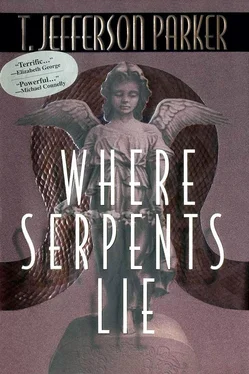


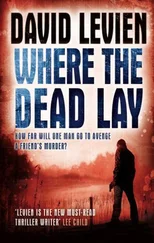
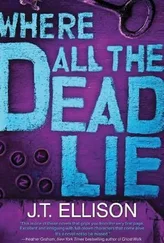

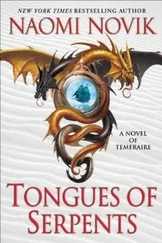

![Джеффри Дивер - Where the Evidence Lies [A Lincoln Rhyme Short Story]](/books/403782/dzheffri-diver-where-the-evidence-lies-a-lincoln-r-thumb.webp)

